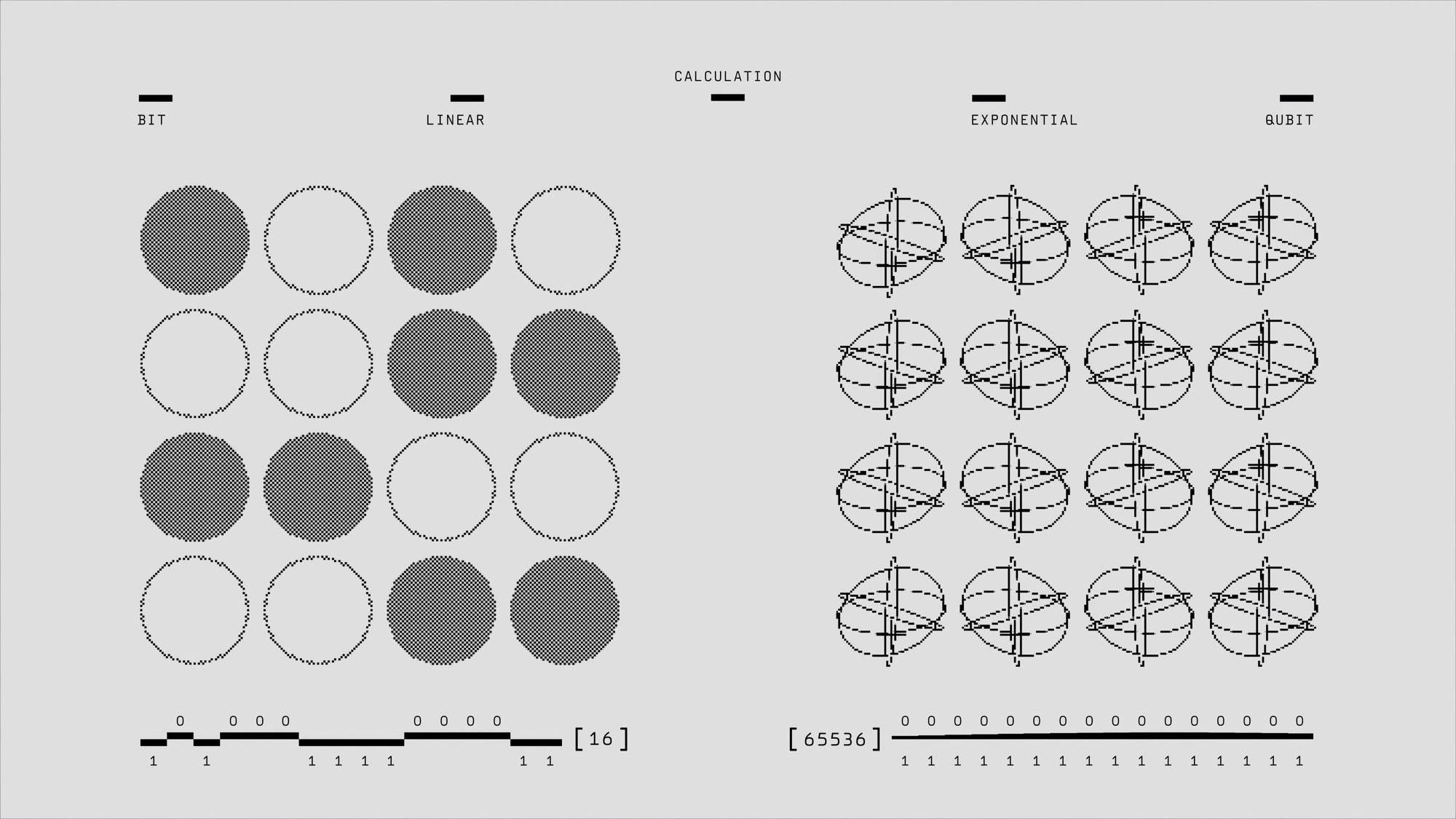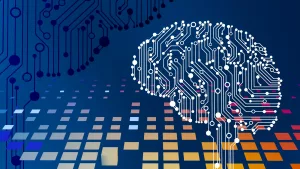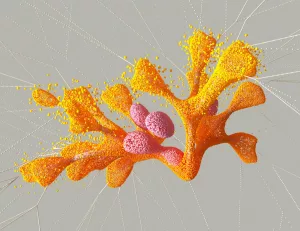Quantum computing is a revolutionary technology that uses the principles of quantum mechanics to process information in ways that traditional computers cannot. While traditional computers rely on binary bits to perform calculations, quantum computers use quantum bits, or qubits, which allow for a vast increase in computing power. This increase in computational capability makes quantum computers particularly well-suited for solving certain complex problems that are impractical or impossible for classical computers to handle.
In this article, we will explore the nature of quantum computers, their applications, and how they differ from traditional computers.
What is a Quantum Computer?
A quantum computer is a type of computer that uses quantum-mechanical phenomena, such as superposition, entanglement, and quantum interference, to process information. Unlike classical computers, which use bits to represent information as either a 0 or a 1, quantum computers use qubits (quantum bits), which can exist in both 0 and 1 states simultaneously. This unique property allows quantum computers to perform certain calculations much more efficiently than classical computers.
Key Concepts in Quantum Computing
1. Qubits
In classical computing, the basic unit of information is the bit, which can be either a 0 or a 1. In contrast, quantum computers use qubits, which can exist in a state of superposition—being both 0 and 1 at the same time. This superposition property enables quantum computers to perform many calculations simultaneously, vastly increasing their computational power.
For example, while a classical computer must process each possible solution to a problem one at a time, a quantum computer can explore multiple possibilities at once due to the superposition of qubits.
2. Superposition
Superposition is a fundamental principle of quantum mechanics that allows quantum systems, such as qubits, to exist in multiple states simultaneously. While a classical bit is in one definite state (0 or 1), a qubit can be in a combination of both states (0 and 1) at the same time. This property allows quantum computers to process information in parallel, making them exponentially more powerful for specific tasks.
3. Entanglement
Quantum entanglement is a phenomenon in which two or more qubits become linked, so that the state of one qubit is dependent on the state of another, even when they are physically separated. This means that measuring the state of one entangled qubit will instantly determine the state of its partner qubit. Entanglement allows quantum computers to coordinate qubits in ways that are impossible for classical systems, further enhancing their computational power.
4. Quantum Interference
Quantum interference occurs when the probability amplitudes of qubit states combine, either constructively or destructively, to influence the outcome of a computation. By carefully controlling interference patterns, quantum computers can amplify correct solutions and suppress incorrect ones, thereby improving the efficiency of quantum algorithms.
How Do Quantum Computers Work?
Quantum computers harness these quantum phenomena (superposition, entanglement, and interference) to perform calculations. The basic steps in a quantum computation involve:
- Initializing qubits in a known quantum state (e.g., superposition).
- Manipulating qubits using quantum gates, which change the state of the qubits in specific ways. Quantum gates are the quantum equivalent of classical logic gates (AND, OR, NOT) but operate on qubits instead of bits.
- Applying quantum algorithms, which use a sequence of quantum gates to solve specific problems.
- Measuring the qubits, collapsing their superposition into definite classical states (0 or 1) and obtaining the final result of the computation.
Quantum computers are still in the experimental and developmental stages, but they have already demonstrated their potential to solve certain problems much faster than traditional computers.
What Are Quantum Computers Used For?
Quantum computers are not intended to replace classical computers for everyday tasks. Instead, they excel at solving specific types of problems that are challenging for classical computers due to their complexity or size. These problems often involve enormous amounts of data or require searching through vast numbers of possible solutions.
Here are some of the key areas where quantum computers could have significant applications:
1. Cryptography
Quantum computers have the potential to revolutionize cryptography by breaking widely used encryption methods that are based on the difficulty of factoring large numbers. Classical computers struggle with factoring extremely large numbers, but quantum algorithms like Shor’s Algorithm could factor them exponentially faster, potentially compromising modern encryption systems.
While this poses a threat to existing encryption, it also opens the door for quantum cryptography, which uses the principles of quantum mechanics to create theoretically unbreakable encryption methods. Quantum key distribution (QKD) is one such method that allows for secure communication by leveraging quantum entanglement.
2. Optimization Problems
Optimization problems involve finding the best solution from a vast number of possibilities. For example, determining the optimal route for delivery trucks, scheduling airline flights, or optimizing supply chains. These types of problems grow exponentially more complex as the number of variables increases, making them difficult for classical computers to solve efficiently.
Quantum computers can address optimization problems using algorithms like Grover’s Algorithm, which can search unsorted databases and find optimal solutions much faster than classical algorithms.
3. Drug Discovery and Molecular Simulations
Quantum computers have the potential to transform drug discovery and molecular simulations by accurately modeling the behavior of molecules at the quantum level. Traditional computers struggle to simulate complex molecules and chemical reactions because the interactions between particles at the atomic level involve quantum mechanics, which is computationally expensive to simulate classically.
Quantum computers can directly model these quantum interactions, enabling scientists to better understand molecular behavior and design new drugs or materials more efficiently. This could lead to breakthroughs in pharmaceuticals, materials science, and biotechnology.
4. Artificial Intelligence and Machine Learning
Quantum computers could greatly accelerate certain tasks in artificial intelligence (AI) and machine learning. These fields involve training algorithms on large datasets to recognize patterns, make decisions, or predict outcomes. Quantum computers can process vast amounts of data in parallel, potentially speeding up the training and optimization of machine learning models.
Additionally, quantum algorithms like quantum annealing can help solve complex machine learning problems that involve optimizing multiple variables simultaneously, leading to faster and more accurate AI systems.
5. Climate Modeling and Weather Forecasting
Accurate climate modeling and weather forecasting require processing massive amounts of data and simulating complex systems involving countless variables. Quantum computers could improve the precision and speed of these simulations by handling the intricate quantum mechanics that govern molecular and atmospheric interactions. This could lead to more accurate predictions about climate change, weather patterns, and natural disasters.
6. Financial Modeling
In finance, predicting market behavior, managing risk, and optimizing portfolios involve complex calculations that are difficult for classical computers to handle in real time. Quantum computers can potentially solve these problems faster and more accurately, enabling better decision-making in financial markets.
For example, quantum computers could be used to optimize investment portfolios by evaluating vast numbers of potential combinations, taking into account risk, return, and other factors.
How Do Quantum Computers Differ from Traditional Computers?
Quantum computers and traditional computers differ in several fundamental ways, particularly in how they process information and the types of problems they are best suited to solve.
1. Bits vs. Qubits
- Traditional Computers: Use bits as the basic unit of information. Each bit is binary and can exist in one of two states: 0 or 1. Classical computers perform computations by manipulating these bits through logic gates.
- Quantum Computers: Use qubits, which can exist in a superposition of both 0 and 1 states simultaneously. This allows quantum computers to process many different possibilities at once, significantly increasing their computational power for certain types of problems.
2. Computation Model
- Traditional Computers: Follow the classical model of computation, where bits are manipulated one at a time using logic gates. Computation is typically sequential, and the amount of processing power is limited by the number of bits that can be handled in parallel.
- Quantum Computers: Operate on qubits using quantum gates, which can manipulate qubits in superposition. Quantum computers use quantum parallelism to perform many calculations simultaneously, allowing them to solve problems exponentially faster than classical computers in certain cases.
3. Superposition and Entanglement
- Traditional Computers: Do not use quantum phenomena like superposition or entanglement. Computations are deterministic, with each operation having a single definite outcome.
- Quantum Computers: Leverage superposition and entanglement to explore multiple solutions simultaneously and coordinate qubits in ways that classical computers cannot. These quantum phenomena allow quantum computers to solve complex problems more efficiently.
4. Processing Power
- Traditional Computers: Rely on increasing clock speed and the number of transistors to boost performance. However, as classical computers approach physical limits (e.g., Moore’s Law slowing down), their ability to handle increasingly complex problems is diminishing.
- Quantum Computers: Have the potential to solve certain classes of problems exponentially faster than classical computers. For example, factoring large numbers, simulating molecular interactions, and solving optimization problems are areas where quantum computers could vastly outperform traditional computers.
5. Applications
- Traditional Computers: Are best suited for general-purpose tasks like web browsing, word processing, gaming, and running applications that involve well-defined, deterministic algorithms.
- Quantum Computers: Excel at solving problems that involve vast numbers of possibilities, such as cryptography, optimization, molecular simulations, and complex decision-making processes. They are not designed for everyday computing tasks but are expected to complement classical computers in specific domains.
Conclusion
Quantum computers represent a paradigm shift in computing, offering the potential to solve problems that are currently intractable for classical computers. By using quantum phenomena such as superposition, entanglement, and quantum interference, quantum computers can process information in fundamentally different ways, allowing them to perform certain calculations much faster than traditional computers.
While quantum computing is still in its early stages of development, it has already shown promise in fields such as cryptography, drug discovery, artificial intelligence, and optimization. As research and development continue, quantum computers could have profound implications for science, industry, and society as a whole. However, for the foreseeable future, quantum computers will likely complement rather than replace classical computers, each excelling in different areas of computation.




